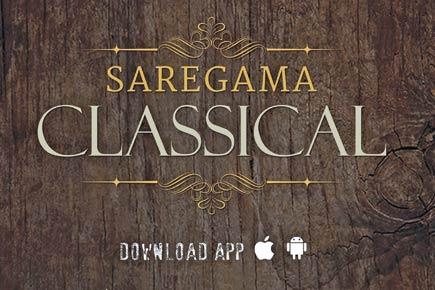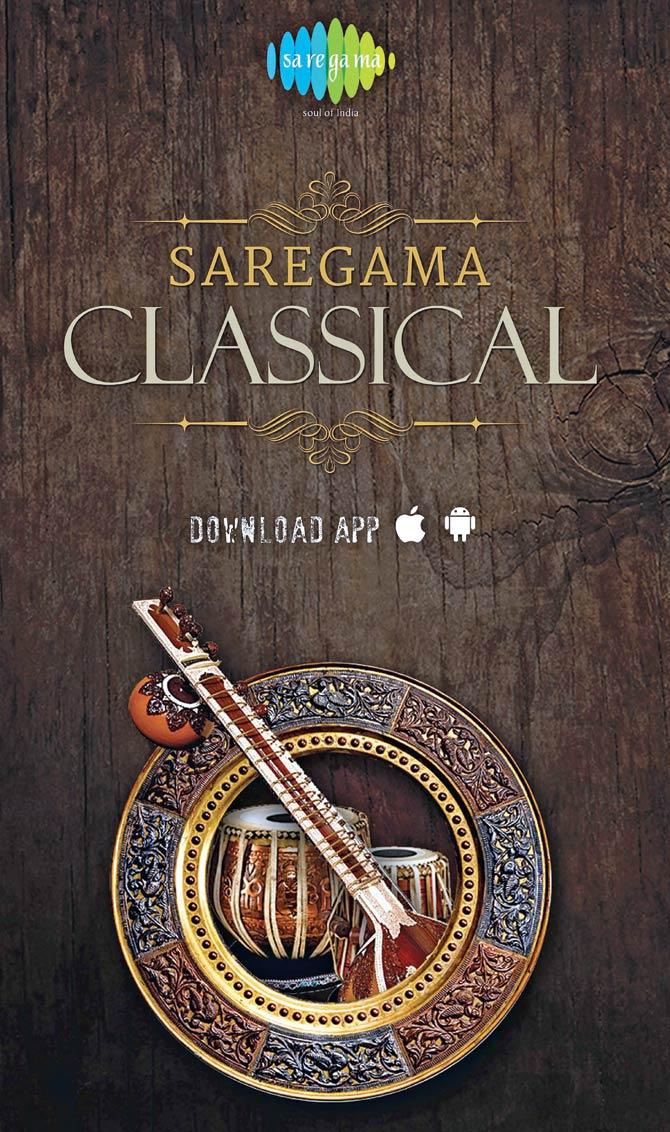Yet, if one gets into it deeply, some amount of fine-tuning is required

![]() Over the years, Saregama India (formerly HMV) has built an extensive catalogue of Hindustani Classical and Carnatic music. With listening habits shifting from physical compact discs to the digital platform, it was only natural for the record label to launch its Saregama Classical App.
Over the years, Saregama India (formerly HMV) has built an extensive catalogue of Hindustani Classical and Carnatic music. With listening habits shifting from physical compact discs to the digital platform, it was only natural for the record label to launch its Saregama Classical App.
ADVERTISEMENT

Saregama Classical App
Besides the legends of traditional North Indian Hindustani and South Indian Carnatic music, the app has a section devoted to Fusion, popular among younger and experiment-seeking audiences. The end result is a library containing over 400 musicians, 8,000 musical works and 50 artiste and instrument-dedicated radio stations.
What works: The biggest advantage is the range in the Hindustani and Carnatic genres. From popular bandishes to rare compositions, the user has a fantastic choice in vocal and instrumental music, and in selection of raags. Each piece has a mention of the raag and taal. Categorisation under raags and instruments make it easier to use.
The sound quality is brilliant, and in many cases, older recordings lend vintage appeal. Another plus point is the radio station dedicated to select artistes. Customers can also create ‘My Playlists’ and ‘My Favourites’ sections. It must be pointed out here that since the selection has been made from the Saregama catalogue, some artistes and popular compositions recorded by other labels will be missing.
What doesn’t work: The structuring is a mess, as artistes have been put in a random order without any apparent logic. Somewhere between legends like Ustad Bade Ghulam Ali Khan and Gangubai Hangal, you
have the relative newcomer Aparna Panshikar. Likewise, in Carnatic music, iconic vocalist Semmangudi Srinivasa Iyer is at the bottom of the list. Compared to the traditional forms, the Fusion section has a limited choice.
The app creators also overlook the very basics. In Hindustani music, the concepts of gharana, guru-shishya parampara and time theory play a very important role, but none are reflected. A separate classification under gharanas would have lent depth, and musicians from the same gharana could have been clubbed.
In Carnatic, the defining role of composers like Thyagaraja, Dikshitar and Syama Sastri seems to have been forgotten. In short, purists may have many reasons to complain. Cost and use: The app comes at a very affordable price. After a free seven-day trial, the monthly subscription for Android is Rs 99 and Apple iOS is Rs 120, with special benefits for semi-annual and annual users.
Strangely, the company underplays the fact that the service is applicable only for Android 4.0 and above. Those with ‘down market’ handsets will get the message — “Your device isn’t compatible with this item.” That may turn off many. Yet, despite the flaws, this is a treasure for Indian classical music aficionados.
 Subscribe today by clicking the link and stay updated with the latest news!" Click here!
Subscribe today by clicking the link and stay updated with the latest news!" Click here!






